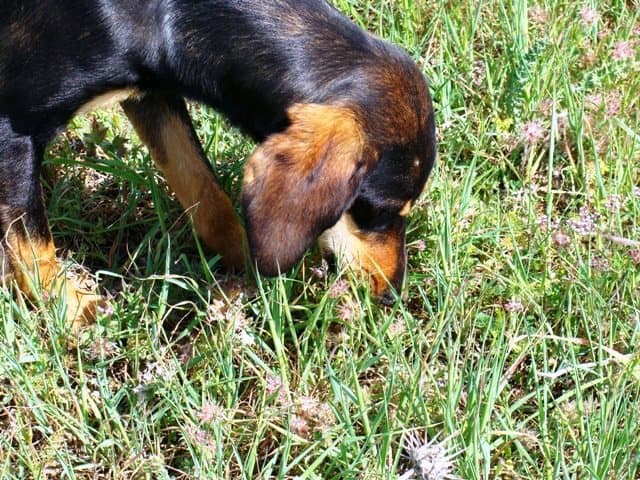Cancer Research. Pets like people suffer from cancer; in fact it’s the number one cause of death for both species today. Purdue University, College of Veterinary Medicine is on the forefront of new research that may offer new hope for some pets. Radioactive scans are now available for pets with cancer on an experimental basis at Purdue University. Learning how to keep your pet healthy is very helpful to prevent the development of degenerative diseases, including cancer. Veterinarian, Dr. Carol Osborne, DVM offers a few tips.
First and foremost, the saying” you are what you eat” applies to people and pets alike. A good diet is essential. Consider giving your dog fresh home-made foods and treats including carrots, broccoli and green beans, to name a few rather than just focusing on chicken and rice. Remember whole foods and fresh veggies are healthy snacks, far superior to commercial dog treats found on grocers shelves. As with people, vegetables also help ward off cancer.
As parents we naturally keep our children away from potential toxins so it makes sense to keep your pets away from them too. Avoid lawn fertilizers, yard, car and pool chemicals and processed foods. Use distilled water for drinking, feed fresh organic whole foods, exercise daily and visit your vet at least once a year. Keeping your pet lean and supplementing your pets diet with a natural, balanced USA made vitamin-mineral supplement such as PAAWS, also adds healthy years to your pets life.
Researchers are learning more about how different cancers affect different types of dogs. For example, Scotch terriers are susceptible to bladder cancer. Golden retrievers often get lymphoma and skin cancer. Larger breed dogs like Great Danes are susceptible to bone cancer. Various breeds of dogs have subtle genetic differences, similar to those found in people. Dr. Osborne’s cancer patients have averaged approximately two years of quality life, after being diagnosed, with certain types of cancer, including Lymphoma in dogs, using a combination of special home-made “anti-cancer” diets and natural vitamin supplements.
Knowledge acquired about these genetic differences is helping researchers find new ways to make pets and their people healthier too. It seems man’s best friend may be our best bet in curing some of the cancers that we all endure.
Purdue veterinarians hope that, one day, body scans will be offered on a routine basis for pets. Currently they are only available now on a trial basis. Only dogs previously diagnosed with cancer are eligible. Pet scans are being offered as an experimental procedure, for dogs already diagnosed with cancer by another veterinarian. Preparation and chemicals used in the procedure can cost between $200-$600 dollars. For more information, canine owners may contact Patty Bonney at the Purdue University School of Veterinary Medicine at 1-765-494-1107.









